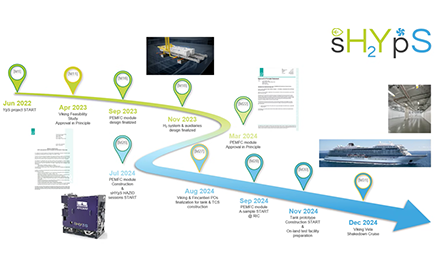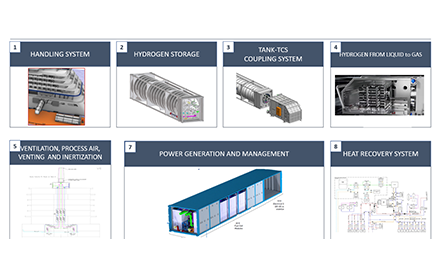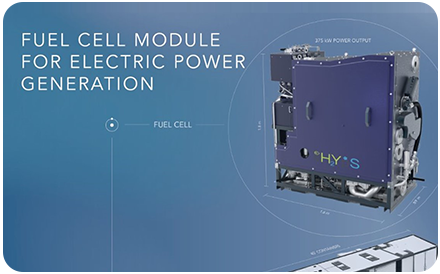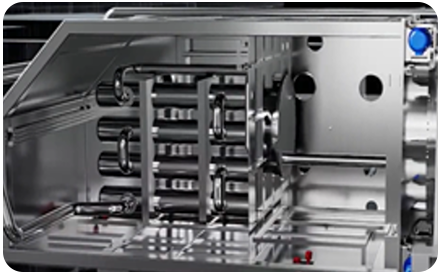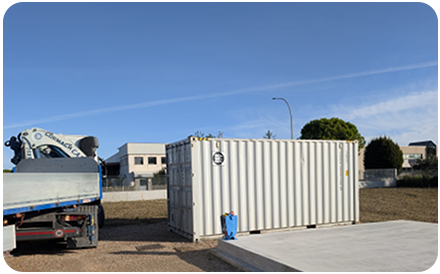![]()
![]()
![]()
sHYpS aims at supporting the decarbonisation of the shipping industry, by leveraging on previous and on-going work and investment made by the consortium members. The project will develop a novel LH2 swappable storage solution, which can be adapted to multiple types of vessels and speed up achieving IMO’s target for 2030 and 2050.
18/12/2025
We are pleased to share Newsletter #7 of the sHYpS project, highlighting the significant technical progress achieved in recent months. Construction of the Viking Libra and development of the LH2 system are advancing steadily, key components are being prepared for testing, and the infrastructure for system validation is now in place. These milestones mark an…
11/12/2025
This week, sHYpS is on site in Děčín, Czech Republic, where our partner Navalprogetti is taking part in the Factory Acceptance Test (FAT) for the Chart Industries, Inc. equipment. This milestone marks significant progress in advancing the technologies that will power next-generation hydrogen solutions for maritime applications. We are proud to move forward together with…
25/11/2025
The sHYpS Project was featured at the 18th Offshore Energy Exhibition & Conference, held in Amsterdam. Representing the project’s coordinating partner Navalprogetti, Silvio Stenta and Alessandro Bernardini took part in the event, presenting the latest developments and milestones achieved within sHYpS. Visitors had the opportunity to meet the team at stand 2.206–5 (ADMA) and learn more…
Have a question or feedback about SHYPS?
Contact us on shyps@navalprogetti.net or leave a message using the contact form.
Subscribe to receive the SHYPS newsletters in your email with latest news about the project and the forthcoming events.
 Views
and opinions expressed are however those of the author(s) only and do not necessarily reflect those
of
the European Union or European Climate, Infrastructure and Environment Executive Agency. Neither the
European Union nor the granting authority can be held responsible for them. UK participants are
supported by UKRI Grants.
Views
and opinions expressed are however those of the author(s) only and do not necessarily reflect those
of
the European Union or European Climate, Infrastructure and Environment Executive Agency. Neither the
European Union nor the granting authority can be held responsible for them. UK participants are
supported by UKRI Grants.

